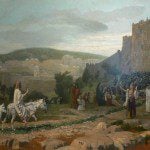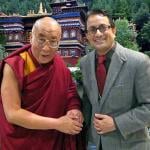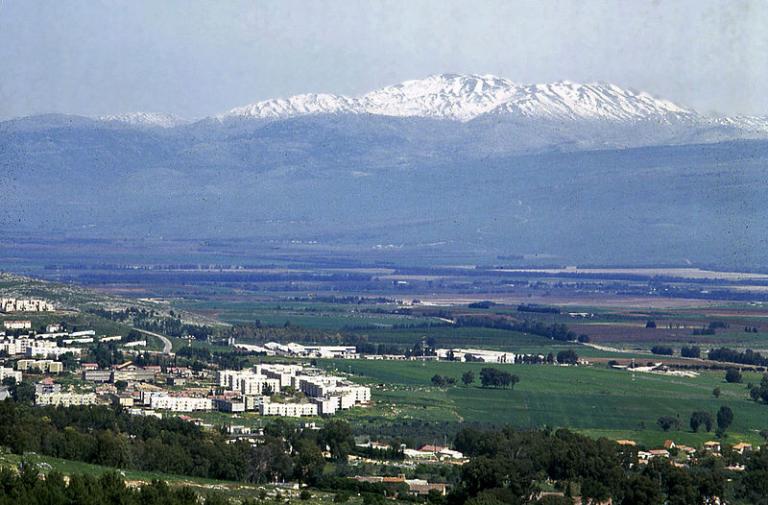

(Wikimedia Commons public domain image)
Compare Matthew 3:17; Mark 1:11; Luke 3:22; 9:37; John 12:28-30
In Matthew 16, Jesus promised to give Peter the keys of the kingdom of heaven. In Matthew 17, Peter, James, and John — acting as the First Presidency of the Church — received them.
As one of the the Church’s New Testament manuals for college-age students explains, “These keys include the power to administer the ordinances of salvation in a manner acceptable to God and the power to administer the Church of Jesus Christ on the earth. An event similar to this one in Matthew occurred in our day when the Prophet Joseph Smith received the keys of the kingdom for this dispensation in the Kirtland Temple in 1836 [see Doctrine and Covenants 110]. Since then the keys have been given by ordination to every Church President.”
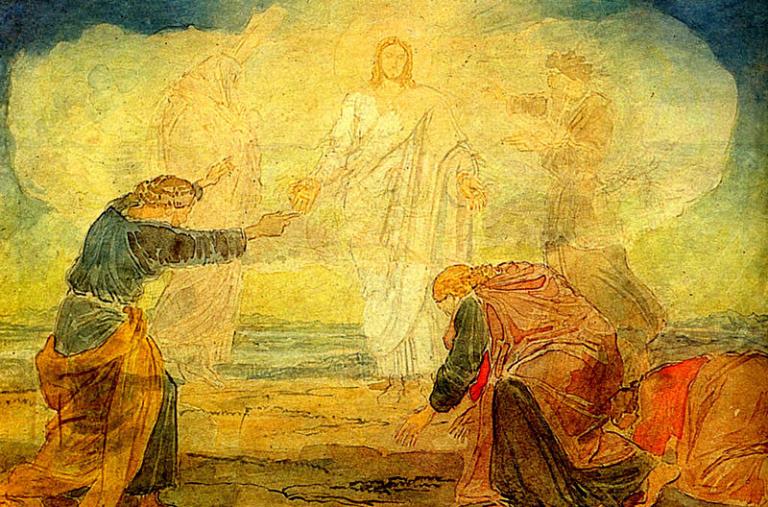
(Wikimedia Commons public domain image))
Elias, of course, is a Greek form of the Hebrew name Elijah (more properly, אֱלִיָּהוּ, Eliyahu; the Greek alphabet can’t represent a medial “h”).
Since Joseph Smith taught of a character called Elias who is distinct from the historical prophet Elijah, many critics have contended that he simply didn’t understand that Elias and Elijah, in his Bible, referred to the same person.
But it’s nowhere near that simple, as ought to be evident from the sheer fact that, in these passages, John the Baptist is described as Elijah/Elias — which, barring a totally invisible and unknown ancient Jewish/Christian doctrine of reincarnation, he most obviously wasn’t in any literal sense, and was never claimed to be.
For a helpful compendium of LDS ideas on this subject, see
http://en.fairmormon.org/Mormonism_and_temples/Elias_and_Elijah_at_the_Kirtland_Temple
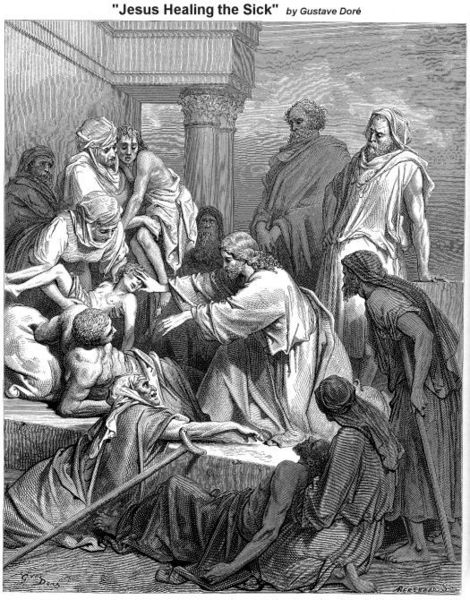
Compare Matthew 17:9; 21:21; Mark 9:9; 11:22-23; Luke 17:6; John 14:9
1.
Again, these passages, with their rebuke of the disciples for their lack of healing faith, demonstrate rather clearly (to my mind, at least) that the Church was not to be built upon the “rock” of mortal human beings — not even those who had been called to be apostles.
2.
I’ve always loved the humanly real passage in which the boy’s father begs for help and says “I believe; help my unbelief!”
Many of us, I suspect, can hear ourselves in that heartfelt plea. Perhaps, in this story, even the apostles could.





